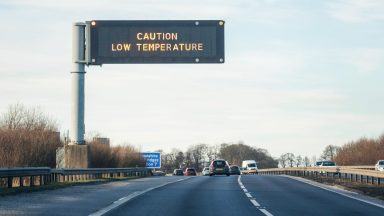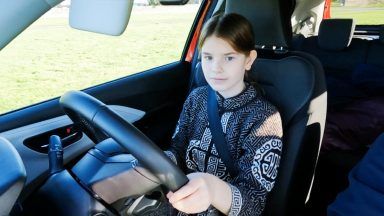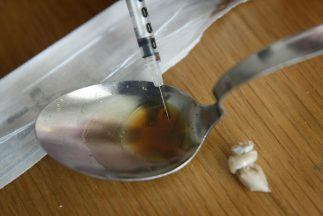The coronavirus outbreak is sweeping through Scotland and is said to hit the elderly and the most vulnerable in society hardest.
Those over 70 or suffering from a high risk illness are more likely to be affected by the virus but are also at risk of being isolated from the outside world.
With the number of cases rising daily, the Scottish Government is now discussing special guidance for elderly or vulnerable people during the outbreak.
Here’s what advice has been issued so far:
Do not self isolate
There has been a level of confusion over self isolation plans for the elderly across the UK.
However, this is a move which the Scottish Government, along with the rest of the UK, does not support.
The Scottish Government’s national clinical director Jason Leitch said: “What we are asking over 70s to do – and those with high risk diseases – is not to self isolate like those with coronavirus symptoms but to simply retreat a little from social contact.
“The last thing we want is lonely people with mental health challenges, with dementia, locked in rooms or houses for three or four months. We are trying to avoid that.”
Health secretary Jeane Freeman added: “We don’t want people who are elderly to be stuck in their homes alone not contacting anyone, with their families not able to be in touch with them and to help them.
“What we’re saying to them is, reduce your contact.”
Reduce contact
While over 70s and those with high risk illnesses are advised not to lock themselves away – they could be expected to reduce their social contact by around 75%.
Clarifying what the government means by reducing social contact, Dr Leitch said: “Reducing your contact might mean no pub, no bingo, it might mean no church for a little while.”
However, he stressed that regular visits from friends and family, who are not affected, are still very much encouraged.
Freeman added: “The additional measures that we’ve always talked about are about reducing contact for those over 70 and in their eighties because they are one of the groups who are most at risk of this virus making them seriously ill.
“The other group is people who have underlying health conditions whose immune systems are suppressed.
“It’s not isolation, it’s asking them to reduce social contact.
Tackle loneliness
Despite cutting down social contact and spending more time at home – it is important elderly or vulnerable people do not suffer loneliness during the coronavirus outbreak.
With many regular events and meetings being cancelled, it is vital for people to stay connected with relatives, neighbours and friends.
Some tips include:
- Stay in regular touch with friends, relatives and neighbours by phone, email or video calls.
- Agree to watch the same TV programme as someone and call for a chat about it afterwards.
- Surround yourself with plenty of entertainment including as books, magazines, games or puzzles.
Age Scotland’s chief executive Brian Sloan said: “We know that older people and those with underlying health conditions may feel more vulnerable during the coronavirus outbreak and as a result they might choose not to go out and socialise as much as they would normally.
“We would urge people who are well and have had no contact with others from high risk parts of the world to think about older people in their community who might be feeling anxious and alone.
“Some older people will be having fewer visits from family who live further afield, because they are unable to travel, so a friendly call or knock on the door could make a huge difference to their day.”
Ask for help
Reducing everyday social contact and spending more time at home could mean elderly people aren’t able to carry out their everyday tasks.
Do not be afraid to ask for help or offer assistance if you find yourself or someone else struggling to manage.
Some arrangements may include:
- Let someone know if you need repeat medication picking up.
- If staying at home make sure you ask someone to pick up groceries and other essentials and leave them on the doorstep.
- Ask for help to set up an online delivery.
- Consider if you need any help with pets.
- Explore services available in your area from local councils, charities and other organisations.
Mr Sloan said: “Being a good neighbour by checking in with vulnerable older people to offer to pop to the shops for them or pick up medication will go a long way to reducing loneliness and isolation. It will also help bring communities together at a challenging time for everyone.
“This is an opportunity to see the best of Scotland, to help and look out for another. Let’s start by supporting older family, friends and neighbours.”
Stay active
It is important to stay active even when spending most of your time at home – whether that’s moving around the house or taking a short outdoor walk away from crowded areas for some fresh air.
Stay sanitised
The key to containing coronavirus and preventing it from becoming widespread is minimising the spread of the infection.
Elderly or vulnerable people need to ensure visitors have washed their hands thoroughly and are not showing any symptoms of the virus.
The most effective way to do this is to wash hands more frequently than usual and for longer – as long as it takes to sing ‘Happy Birthday’ twice, and always use a disposable tissue when sneezing or coughing and throw it away after use.
Follow STV News on WhatsApp
Scan the QR code on your mobile device for all the latest news from around the country




























